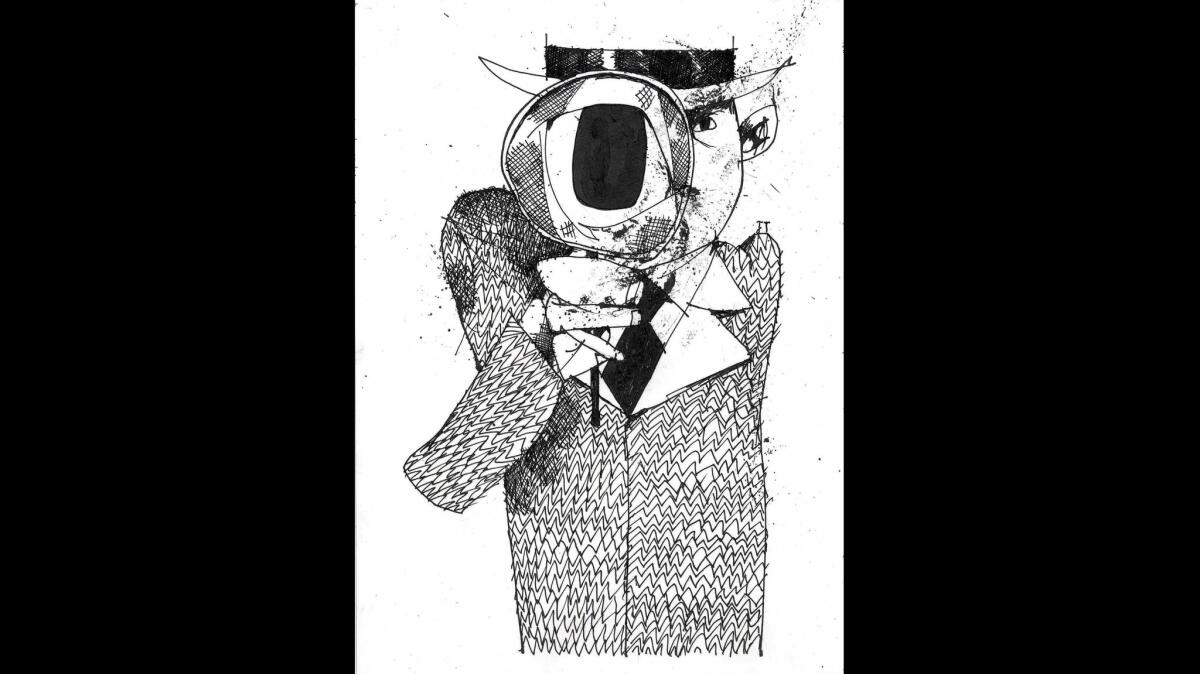Op-Ed: When a government spies on its citizens: lessons from Chile

- Share via
What are the deep, long-term effects of clandestine surveillance on a country? The current debates in Congress regarding the renewal — or modification — of the Patriot Act offer an occasion to hold an open discussion that is long overdue.
My own experience may be relevant to that discussion.
It was on Sept. 12, 1973, the day after a military coup overthrew the democratically elected government of Chile, that I started to understand that language was also a victim when massive state spying permeates a hitherto free nation.
That Wednesday happened to be my wife Angélica’s birthday, and the only gift I could offer her was the news that I had not been killed in the coup. Not an easy gift to deliver. The only phone available was at a small bungalow a few blocks from the house where I had been stranded with other militants. The new junta had issued a 48-hour curfew the day before and anyone venturing out could be summarily executed. This was a threat to be taken seriously. The military had bombed the presidential palace and announced the death of President Salvador Allende, and was hunting down his followers. They would torture and kill thousands of people in the ensuing weeks.
Even so, I crossed those dangerous streets and called my wife. Not only because she needed comforting but because I did. I needed her to anchor me to something real and foundational, proof that not everything had been shattered by the ongoing nightmare of violence. The conversation, however, troubled me. Only a few days before, we would have liberally shared our thoughts and openly talked about our friends. Now trepidation haunted our every word. Not knowing who might be listening, each phrase was guarded, cautious, obscure, full of allusions and double meanings. “I heard Amanda’s father is in the hospital,” Angélica said, relaying that the singer and political activist Victor Jara had been arrested. “In intensive care?” I asked, wondering if they’d killed him. “The doctors won’t say,” she replied. And so it went.
It was a first lesson in how to handle the fear and threat of arrest during the next 17 years of dictatorship. We used indirection and obliqueness, which became so prevalent in everyday communication that people ended up internalizing the censor, training their minds not to think what they dared not say publicly. Privacy is an illusion when the government knows everything about you and tomorrow may bring that government violently into your life.
Later, I watched this poisoning of my country from exile. It was worsened by the widening gap between those of us who had fled and were free to speak and write, and those who had remained behind and were subject to invisible eyes and ears and to all too visible guns. Some later joined us abroad, after they had pushed the limits of what was permissible and paid the price.
Oscar Castro staged a play in Santiago in which a captain goes down with his ship promising better days. The secret police, decoding that last scene as a reference to Allende, arrested, tortured and expelled the playwright from the country. They also “disappeared” his mother and brother-in-law. Guillermo Núñez, one of Chile’s eminent painters, was imprisoned in a concentration camp. After his release, he mounted an exhibition of cages — birds and poems and shoes like those in a Van Gogh painting, locked behind bars. He was arrested again, tortured again and ultimately banished. His ordeal served as a warning to any who would test the timid codes of expression.
As the years passed, the people of Chile were able to break down the manifold barriers and lies erected by the regime and find the courage and cunning to get rid of the dictatorship. But the damage to our psyche and our tongue, to our art and literature, to our vocabulary, lingered on. It endures today in hidden recesses of our minds and hearts, polluting and twisting the way we address one another.
That toxic atmosphere is one of the reasons Angélica and I no longer live in Chile, despite many efforts to return before and after the restoration of democracy. We could no longer recognize a homeland where the persistence of duplicity and dread stifled trust and creativity.
And yet here in the United States, the country where we finally sought and received refuge, the experience of Chile is now sadly significant. I am not so naive as to ignore the many past instances when the U.S. government spied on its citizens and hounded them with information illegally extracted. But there is nothing that compares with the sweeping and unchecked powers of surveillance authorities exercise today. The fact that technology now allows eavesdroppers to collect every conversation, every intimate exchange, every secret or joke should make Americans tremble. Tremble not only because the potential for abuse is so enormous, but also because such suffocating scrutiny will inevitably corrode and corrupt free expression.
It is shameful when we cannot call the person we love to say “happy birthday” without the fear that someone is listening and recording our words, and that there may come a day when people we have never met but who know everything about us can brutally use our own words against us.
If there was ever a time to take a stand it is now, it is always now.
Ariel Dorfman is the author of the play “Death and the Maiden” and, more recently, the memoir “Feeding on Dreams: Confessions of an Unrepentant Exile.” He teaches at Duke University.
Follow the Opinion section on Twitter @latimesopinion and Facebook
More to Read
A cure for the common opinion
Get thought-provoking perspectives with our weekly newsletter.
You may occasionally receive promotional content from the Los Angeles Times.










